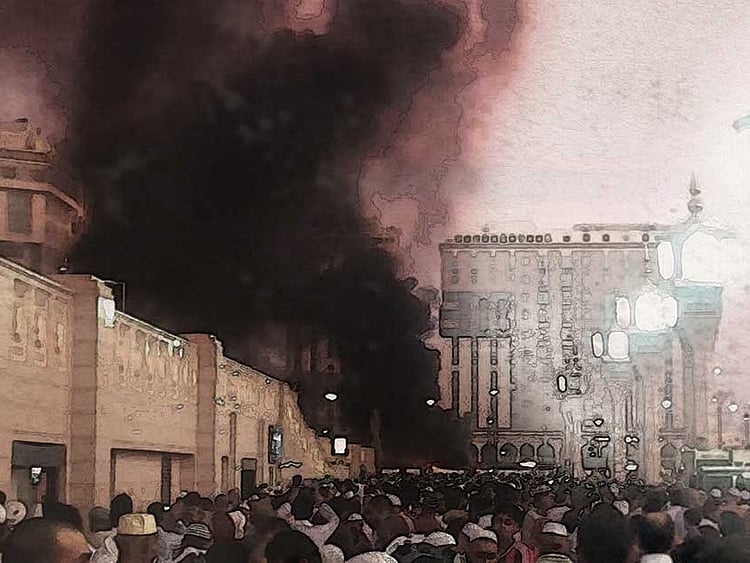Saudi Arabia has come under intense scrutiny and criticism in recent years following some highly publicised terrorist attacks in France, Belgium and the USA, which claimed a substantial number of innocent victims. Charges that the kingdom’s strict interpretation of Islam has led to the emergence of deviants along with disruptive sermons from fiery clerics has had the country back-pedalling to deny such allegations. Their pleas that they too were victims of such acts usually fell on deaf foreign ears.
However, a series of suicide bombings last week in the final days of Ramadan, which rocked the country, has many outsiders wondering whether the Saudis were telling the truth all along; that such evil people hold no allegiance to religion or country.
A month that is spiritually significant for Muslims the world over, Ramadan is that one period where good deeds matter most. It is a time when Muslims repent, ask for forgiveness for their sins and spend their time in intense worship.
Muslims tune up their spiritual oneness and make peace with those who may have wronged them. They strengthen ties with family and friends, and shoo away bad habits and bad feelings that may linger. These are some of the ways Muslims use to draw themselves closer to God. This is what true Muslims believe in and do.
Last week, in the final few days before Ramadan was to end, a series of planned attacks by terrorists rocked the country. Most of the residents were deep in prayer when news came out of these horrendous acts. It was on July 4 — two days before Eid Al Fitr and, coincidently, the same day that Independence Day falls on and is widely celebrated in the United States — when the terrorists took to executing their evil intent. A suicide bomber blew himself up near the gates of the US Consulate in Jeddah, three terrorists set off blasts near a mosque in Qatif in the eastern province of the country, and in what shocked most, a terrorist who was apprehended as he was walking suspiciously towards the Prophet’s Mosque across an open area used as a car park for visitors, blew himself up with an explosive vest he was wearing. Fortunately he had not made his way among the masses of people who had gathered at the mosque prior to evening prayers. Not so lucky were the four security personnel who had detained him, as they perished in the blast along with the perpetrator.
Biggest challenge
The series of blasts in three different cities set off alarm bells among residents. This couldn’t be happening, and certainly not in Ramadan. There was an air of disbelief that terrorists could conjure their evil intent against one of the holiest shrines of all Muslims. A few days later, the Ministry of Interior announced that the terrorist involved in the Madinah explosion was a Saudi who had a history of drug-related issues.
King Salman Bin Abdul Aziz quickly assured all that the kingdom remained vigilant against such acts and warned that “the biggest challenge facing the Islamic nation is to preserve real wealth and hope for the future of the young who face the risk of extremism and malicious calls pushing them to abnormal behaviours and practices … We will obliterate those who attempt to manipulate the minds of our dear youth.”
In a direct message, King Salman added: “Such conducts contradict the upright innate character, the principles of our Islamic religion and the pillars and values of our Islamic societies. The Kingdom of Saudi Arabia is determined, God willing, to strike with an iron fist whoever targets the minds, ideas, thoughts and trends of our youth. Society should be aware that it is a partner of the state in its efforts and policies to counter this deviant thought, as we, all of us, follow the teachings and instructions of our Islamic religion, which clearly forbids bloodshed.”
Perhaps it is also important to note that the time has come to completely disown the monsters who carry out, profess and propagate terrorism and who are influencing the minds of the youth.
The term radical Islam is a misnomer and terrorism has nothing to do Islam.
As one resident put it: “The statistics and facts will clearly demonstrate that more innocent Muslims have been killed by the monsters than the non-Muslims and the fact that the acts of terror were carried out in the mosques or their vicinities including the Prophet’s Mosque provides ample evidence that one needs to term the terrorists as infidels.”
Indeed, such evil people have not the slightest connection or solidarity with any of the major religions and their only rewards in the hereafter will be eternal damnation.
Tariq A. Al Maeena is a Saudi sociopolitical commentator. He lives in Jeddah, Saudi Arabia. You can follow him on Twitter at www.twitter.com/@talmaeena.
Sign up for the Daily Briefing
Get the latest news and updates straight to your inbox
Network Links
GN StoreDownload our app
© Al Nisr Publishing LLC 2026. All rights reserved.
